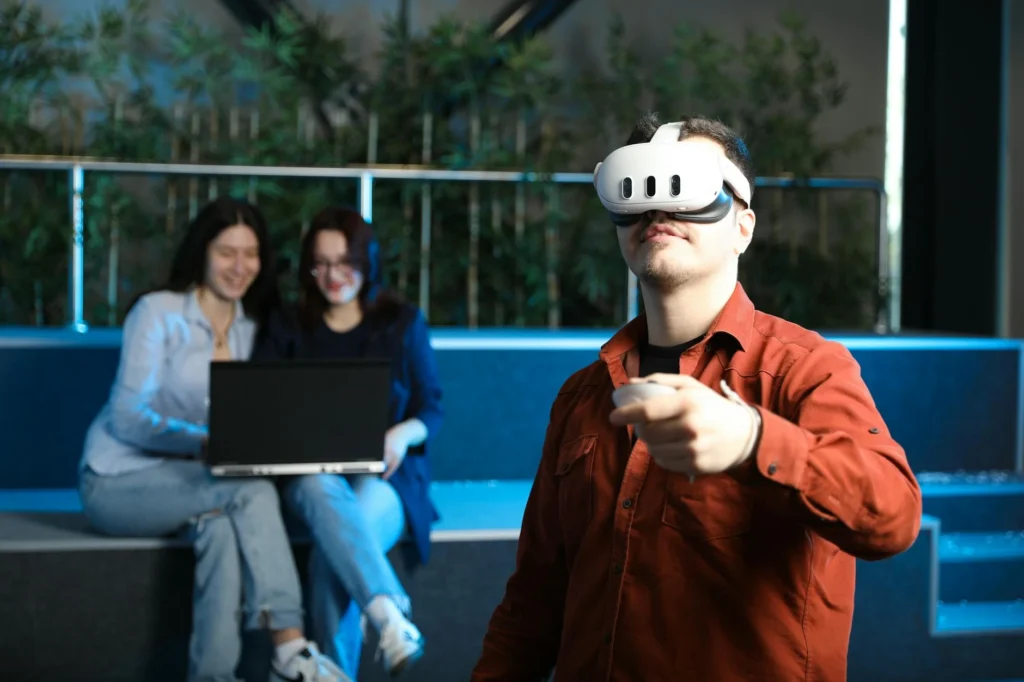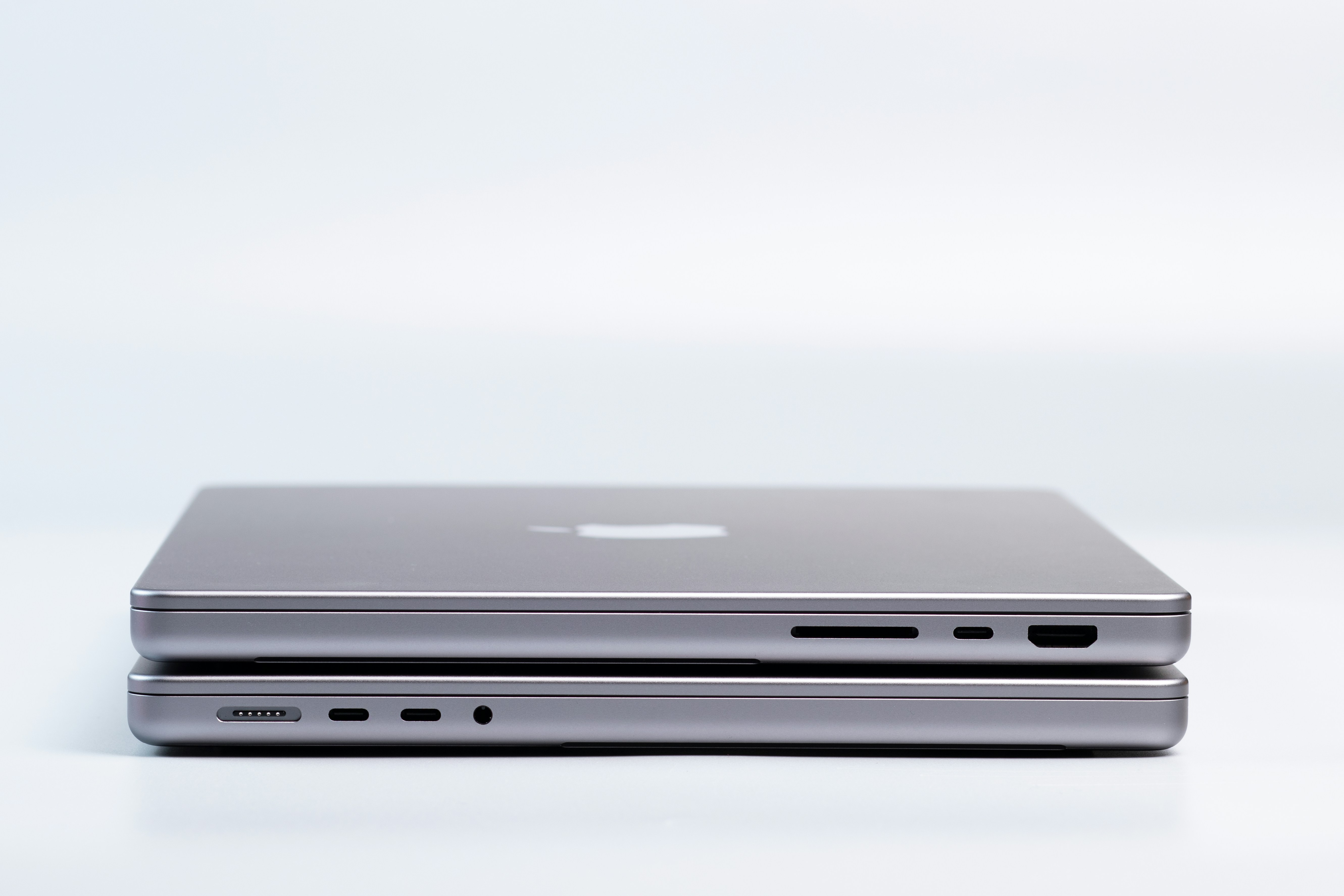
Introduction to the Future of Student Laptops
In recent years, the landscape of educational technology has evolved at an unprecedented pace, significantly impacting the design and functionality of student laptops.
These devices have transitioned from basic tools for note-taking and research to comprehensive learning centers equipped with advanced capabilities. As technology continues to advance, student laptops are increasingly becoming integral to both in-person and remote learning environments. This transformation underlines the importance of investing in efficient, reliable, and innovative devices tailored to meet the needs of today’s learners.
One of the primary driving forces behind the rapid evolution of student laptops is the necessity to adapt to new educational philosophies.
With the shift towards more interactive and student-centered learning approaches, the demand for laptops that can facilitate collaboration and creativity has surged. Schools and institutions are recognizing that equipping students with the right technological tools can significantly enhance their learning experiences, drive engagement, and improve productivity. Consequently, laptops designed for educational use are incorporating features that not only cater to academic requirements but also support various learning styles and preferences.
Moreover, the challenges presented by remote learning during the recent global situation have accelerated the need for versatile student laptops. As education moved online, the expectations for performance, durability, and functionality surged.
This unforeseen shift has spurred innovation in laptop design, resulting in features that optimize connectivity, battery life, and overall usability. As we look ahead to 2025, we can anticipate student laptops to be equipped with surprising features that tackle contemporary educational challenges while enhancing students’ everyday academic experiences.
In this post, we will explore five remarkable features expected to be standard in student laptops by 2025, showcasing how these innovations will further redefine the learning landscape.
Extended Battery Life with Solar Charging Capabilities
The evolution of laptop technology is significantly influenced by advancements in battery performance and energy efficiency. By 2025, students can expect laptops equipped with extended battery life supported by solar charging capabilities.
This innovation will be a result of ongoing research into energy-efficient components that consume less power, thus increasing overall battery longevity. As educational demands continue to rise, the need for reliable devices that can withstand long hours of use without frequent charging is paramount.
Solar charging represents a groundbreaking shift in how we approach laptop design, examining how devices can harness renewable energy. With the integration of lightweight solar panels on laptop exteriors, students will have the convenience of charging their devices while on the go, effectively extending the battery life without being tethered to traditional power sources.
This integration not only ensures that students remain productive during long study sessions but also promotes sustainable energy usage that aligns with environmental conservation efforts.
Moreover, these solar charging capabilities will enhance student mobility. Imagine being able to charge a laptop during outdoor study sessions or in transit, making it a readily available tool at any location.
This flexibility is especially beneficial for students who often engage in learning activities outside conventional classroom settings. The incorporation of solar technology not only addresses the demands of modern education but also adapts to the lifestyles of students who require dependable, portable devices.
Furthermore, the environmental benefits cannot be overstated. Utilizing solar energy reduces reliance on fossil fuels, which is crucial in combating climate change. As students become more conscious of their carbon footprint, laptops with integrated solar charging will be an attractive option, reflecting a commitment to sustainability and innovation in technology.
AI-Powered Personal Learning Assistants
The integration of artificial intelligence into educational tools has witnessed remarkable growth, and by 2025, AI-powered personal learning assistants are expected to become a staple in student laptops.
These advanced applications will play a pivotal role in shaping the future of learning, offering functionalities that enhance both the academic experience and personal engagement with educational material.
One of the most notable features will be real-time tutoring. AI learning assistants will utilize sophisticated algorithms to analyze a student’s performance and understanding of various subjects. By identifying specific areas where improvement is needed, these assistants can provide tailored support, instantly generating practice questions, quizzes, and explanations suited to the learner’s pace.
This personalized intervention can foster a deeper comprehension of complex concepts, leading to improved academic outcomes.
Adaptive learning paths will also revolutionize how students interact with their curriculum. By continuously monitoring progress and adjusting the difficulty of tasks, AI tools will help ensure that learning remains both challenging and achievable.
This dynamic adaptability features smart recommendations for additional resources or practice that align closely with individual learning styles, which can significantly enhance retention and engagement.
Furthermore, AI-powered tools are anticipated to automate tedious tasks such as note-taking. Utilizing natural language processing, these systems can convert spoken lectures or discussions into comprehensive notes, allowing students to focus more on understanding the material rather than getting bogged down by manual documentation.
However, introducing AI to educational contexts raises important ethical and privacy considerations. Safeguarding students’ data and ensuring the responsible use of AI technologies will be essential in maintaining trust and protecting individual privacy.
As these advancements unfold, the role of AI in education will not merely augment traditional learning methods but fundamentally transform them, paving the way for a more personalized and efficient educational experience for all students.
Enhanced Collaboration Tools and Virtualization Features
As we approach 2025, the evolution of student laptops will be significantly influenced by the demand for enhanced collaboration tools and virtualization features. The increasing reliance on digital learning environments necessitates that these devices not only support individual study but also facilitate seamless cooperation among students.
Advanced collaborative tools will be integrated into laptops to allow for real-time editing and brainstorming, ensuring that multiple users can contribute to a project simultaneous, regardless of their physical locations. This feature is particularly vital as educational institutions continue to embrace hybrid and remote learning models.
Another key area where innovation will occur is in cloud integration. Student laptops will be equipped with sophisticated cloud-based applications, which will enable students to access, share, and manage their work effortlessly.
Cloud integration will be optimized to support quick file sharing and project management functionalities, allowing students to coordinate more effectively and stay connected. This means that updating documents or projects can happen on-the-fly, contributing to an efficient workflow that streamlines communication among team members.
Moreover, virtualization technologies will play a critical role in the future of student laptops. By simulating multi-user environments, these technologies will empower students to engage in interactive group projects as if they were physically present in the same space. Virtualization will facilitate the creation of digital classrooms where students can collectively brainstorm, analyze, and present ideas, enriching their educational experience.
Consequently, the forthcoming laptops will evolve into collaborative hubs, allowing students to not only connect academically but also to foster social relationships that are essential for their growth as learners.
FAQ (Frequently Asked Questions)
Question 1:
What are the two main innovations highlighted for student laptops by 2025 regarding power and energy?
Answer:
By 2025, student laptops are expected to feature extended battery life due to energy-efficient components and incorporate solar charging capabilities, allowing students to charge their devices using lightweight solar panels on the laptop’s exterior.
Question 2:
How are AI-powered personal learning assistants expected to enhance the academic experience for students?
Answer:
AI-powered personal learning assistants will offer real-time tutoring by analyzing student performance to provide tailored support (like practice questions and explanations), create adaptive learning paths that adjust task difficulty, and automate tasks such as note-taking using natural language processing.
Question 3:
In what ways will collaboration and virtualization features in future student laptops support modern learning environments?
Answer:
Enhanced collaboration tools will allow for real-time editing and brainstorming for simultaneous project contribution, complemented by sophisticated cloud integration for easy file access, sharing, and management. Virtualization technologies will simulate multi-user environments, enabling students to engage in interactive group projects as if they were physically present together.
Question 4:
According to the introduction, what are the primary driving forces behind the rapid evolution of student laptops?
Answer:
The primary driving forces are the necessity to adapt to new educational philosophies (such as interactive and student-centered learning, demanding tools for collaboration and creativity) and the challenges presented by remote learning, which accelerated the need for versatile laptops with high performance, durability, and functionality.
To Explore More About AI Tools – Click Here
















